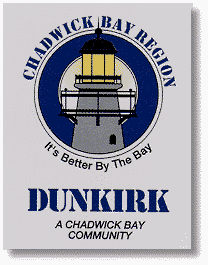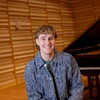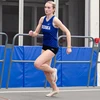 The U.S. Department of Housing and Urban Development Office of University Partnerships has named the State University of New York at Fredonia as one of 13 new Community Outreach Partnership Centers (COPC), which it is funding across the country to address neighborhood problems at grassroots level.
The U.S. Department of Housing and Urban Development Office of University Partnerships has named the State University of New York at Fredonia as one of 13 new Community Outreach Partnership Centers (COPC), which it is funding across the country to address neighborhood problems at grassroots level.SUNY Fredonia’s COPC grant, totaling $399,868, will develop partnerships with Dunkirk residents, churches, civic groups, area government offices, neighborhood organizations, and non-profit organizations with the goal of revitalizing the city’s economy and quality of life.
“A challenging part of this project is the sheer number of collaborations and partnerships that we will be brokering to make some fundamental changes at the core of the community,” SUNY Fredonia President Dennis L. Hefner said.
HUD created the COPC grant program to tap the resources of universities in order to help distressed communities. Awards are only made to proposals which demonstrate the centrality of community leadership at both the planning and implementation stages.
The partnering groups which have signed on for the project include, in addition to SUNY Fredonia, the City of Dunkirk (including the Housing Authority and the City Court), Brooks Memorial Hospital, Dunkirk Free Library, the Chautauqua County Health Department, the Newman Center in Fredonia, Getsmani Inglesia, Friendship Baptist Church, Open Door Church of God and Christ, Northern Chautauqua Community Foundation, the Chautauqua Leadership Network, SUNY Fredonia’s Liberty Partnership Program, and the Workforce Investment Board.
Dr. Leonard E. Faulk, interim dean of graduate studies and SUNY Fredonia political science professor, Maggie Bryan Peterson, director of Fredonia’s grants administration office, and grant writer Amy Cuhel-Schuckers prepared the grant on behalf of SUNY Fredonia’s Center for Rural Regional Development and Governance.
“The target area is the City of Dunkirk, but we will also incorporate smaller secondary and sub-areas which are integral to the city’s consolidated plan,” Dr. Faulk said.
The project was developed with direct input from community residents, community groups, and local government. “We’ve identified the true needs to be addressed from the point of view of the residents,” Dr. Faulk said. “Leadership from local clergy was critical to the process, and the active involvement of Rev. Early Waller of the Friendship Baptist Church, Rev. Carlos Garcia of Getsmani Inglesia, and Roosevelt Haynes helped us clearly articulate community needs.”
The project will focus on empowering local neighborhoods to develop solutions to their own issues, especially in lower income and ethnic populations. A corps of community leaders and volunteer citizens will be trained in leadership and networking skills, as well as strategic planning methods. A generation of future leaders will be prepared through special training programs aimed at youth groups.
The need for educational and cultural enrichment will be tackled under the auspices of the College of Education and School of Music at SUNY Fredonia, while the School of Business will look for ways to gear up the residential workforce for better employment opportunities. Some residents will be targeted for small business coaching.
In total, HUD provided $6.3 million to form new campus and community partnerships across the nation, aiming them at areas with distinct urban problems. Universities in New York, California, Arizona, Colorado, Maine, Massachusetts, Oklahoma, and South Carolina were funded. New York State received the highest number of new grants, all except one going to the SUNY or CUNY system campuses. Western New York received the largest number of grants in any geographic area. Its recipients were SUNY Fredonia, SUNY at Buffalo’s Research Foundation, and Niagara University.



